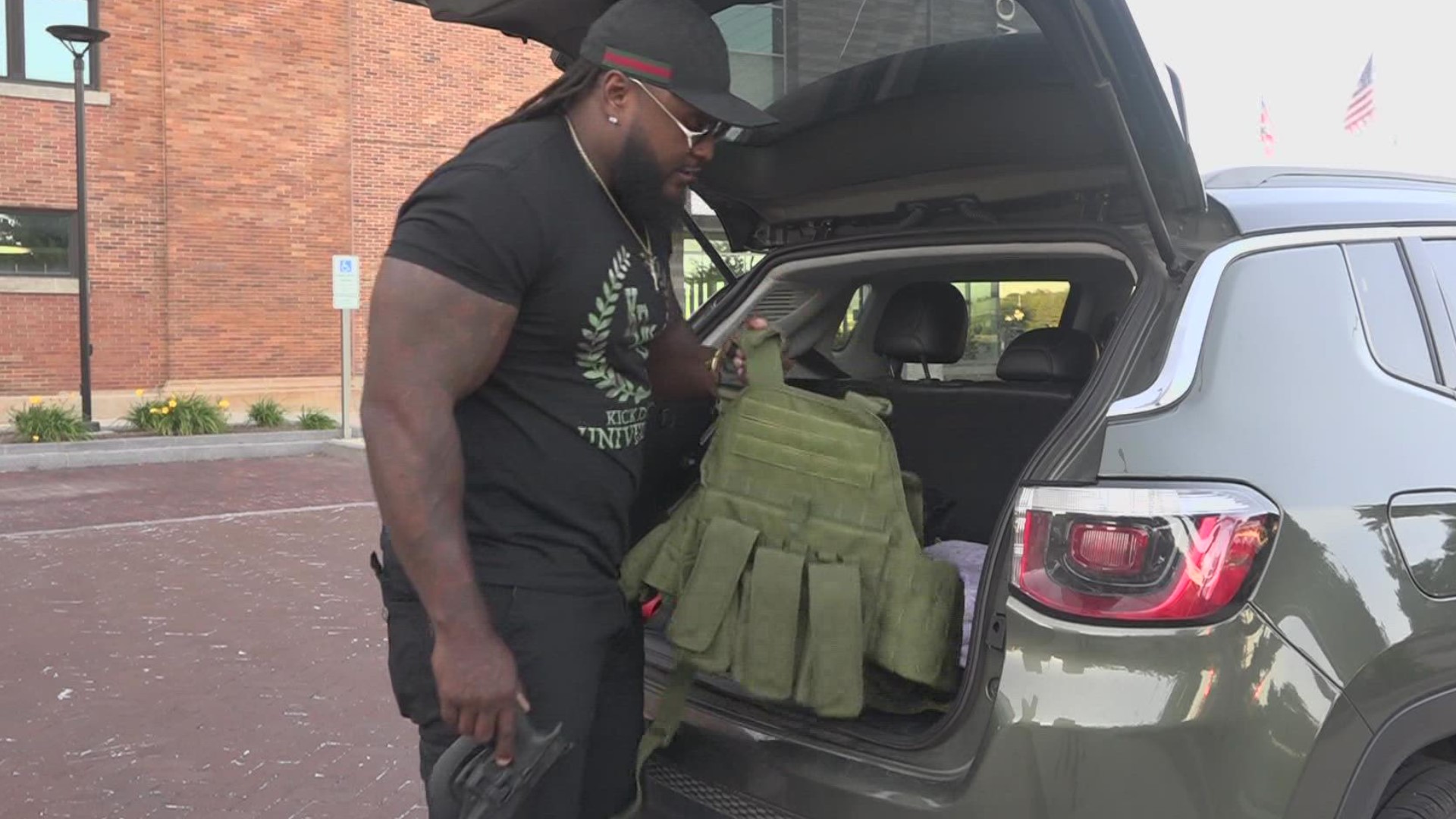TOLEDO, Ohio — The profession of a bail bondsman has evolved over the last 20 years, but it's still a fairly small one. Franklin Frazier has been a bondsman for the last 14 years and has seen his industry change.
"To keep a long story short, I went to school for nursing and was playing football and realized football wasn't going to work out," Frazier said. "So, I looked into being a state marshal, there was a hiring freeze at the time. I did more research and ended up stumbling upon bounty hunting."
He said it intrigued him and he felt like he was a natural at it, plus, he liked that it's not an office job.
"It's become part of me, it's the adrenaline," Frazier said. "I love being out and dealing with people, I'm always constantly dealing with people. I'm a people person and you work on your own time. I'm always on the go and I like being busy. When I'm sitting still, I feel like I'm going crazy."
Frazier also has a YouTube channel where he goes by "Bounty Tank" and has over half a million subscribers. He documents all of his hunts, showing what his job is like and how he works to help the people he's looking for.
Despite the slang term 'bounty hunting' being popularized, the industry was only professionalized in 2001.
Mary Smith, the managing general agent for Smith Bonds & Surety in Rossford said now, the job requires specific training and licenses.
In fact, in Ohio, it's technically against the law to use the term 'bounty hunter'.
"It's to not confuse people who come in and try to pretend like they are bounty hunters to go and knock on doors and it's trying to professionalize the industry and bring it to a more respectful industry," Smith said.
The people bondsmen hunt down are charged with a crime and paid their bond to stay out of jail. But when the time came to show up for court, they skipped out.
Frazier refers to them as "bail jumpers."
"I am going after people that I've strictly bonded out or other bondsmen, that's it," he said. "We're not out here fighting crime. That's for the police, we strictly focus on people who have been bonded out of jail."
Bondsmen like Frazier are quick to admit they're not police officers, but they do deal with law enforcement on occasion.
"We don't often deal with (bondsmen) other than if they pick someone up in the middle of the night and need the person held in jail before they go to court," Wood County Sheriff Mark Wasylyshyn said. "They've done their job and retrieved the person and because there is a warrant for the person's arrest we can house them in the jail and take them to court the next day."
Wasylyshyn said his deputies deal with the criminal side of retrieving people; what's commonly known as a warrant.
Bondsmen are on the civil side because the contract between them is not through the courts.
This also means bondsmen operate by a different set of rules.
"We can't just go into the person's home," Wasylyshyn said. "We can knock on the door, we can ask, but we cannot search. Now, if we believe the person is in there and can articulate that, we would go back to the court and get a search warrant."
Wasylyshyn also said his deputies have to stay within their jurisdiction. But bondsmen don't have boundaries when it comes to picking someone up and bringing them back.
Frazier is the perfect example.
"Mostly it's Akron," Frazier said of where he often works. "I travel to Cleveland, Canton, basically where ever they go, I go. Out of town, sometimes I go out of state."
There's also been a few times when that work has brought him to northwest Ohio.
He said sometimes it will take him a few days to catch someone, and other times it takes weeks.
And that's partly why the industry isn't as big as people might think.
"It's a very small industry on its own," Smith said. "There are very few bondsmen across the nation, maybe 10,000. It's a very high-risk industry, so you better know what you're doing when you're writing these bonds."
The job is all about risk and reward, but that doesn't mean there's a lack of business.
"I'll say this: crime never stops," Frazier said. "Crime never stops, so it's job security ... you can make a good living at doing it."
Both Frazier and Smith said although they are catching people who skipped bail, they see their job as more than that.
"After I arrest some of these guys, I always offer them help," Frazier said. "Whether it's financial or helping them build their brand. I tell them if they need something or help, contact me."
And Frazier believes every person he catches is an opportunity to help them turn their life around.

